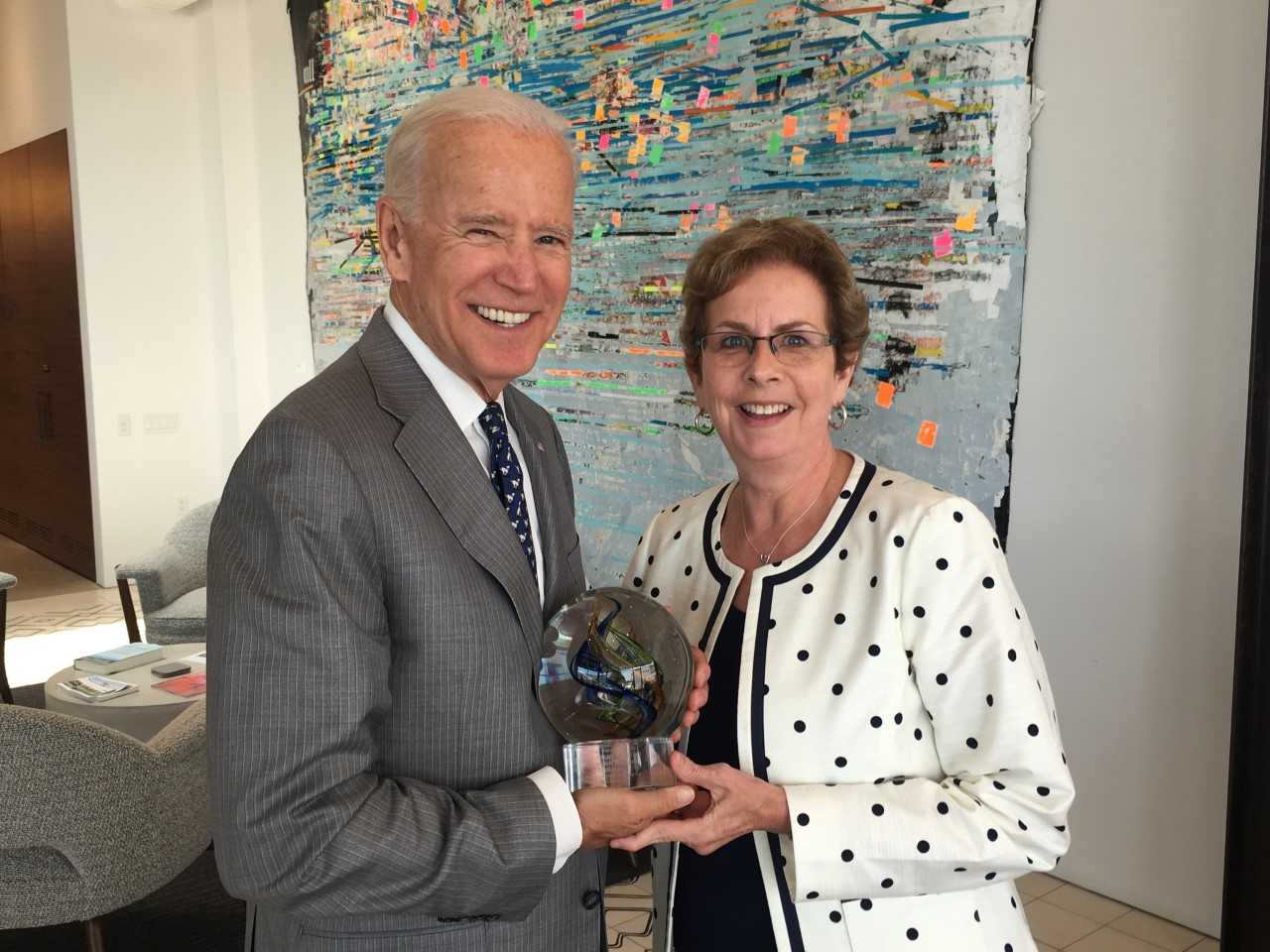Keynote speaker Lee Tomlinson, founder of the C.A.R.E. Effect, discussed his journey from cancer survivor to patient advocate, calling for compassionate care and thanking nurses for being the reason he is alive today, during the opening session at the 43rd Annual Congress in Washington, DC, on Thursday, May 17, 2018.
Tomlinson is a throat cancer survivor and discussed his experience navigating the disease and the healthcare system. Although most of his care experiences were positive, he also described situations where healthcare professionals did not treat him as a human. At a low point in his care after developing sepsis from his port and winding back up in a hospital that provided suboptimal personal care, Tomlinson considered ending his life.
However, Dean Edell, MD—a physician with national radio and TV broadcasts—inspired him to live, fight, and become a champion of patients with cancer. Tomlinson connected with other survivors and conducted research to determine the most important parts of compassionate care. He pinpointed four behaviors that comprise the C.A.R.E. Effect:
- Connect: Do you look patients in the eye when you speak? Do you see them as a person?
- Attentive: Are you aware of their needs?
- Respectful: Do you shake their hand? Do you call them by the preferred name?
- Expressive: Are you just going through the motions, or are you being real with patients?
“If you’re doing all four of those things, you’re providing compassionate care,” he said. “Your full-time job is to help patients relieve mental and emotional pain, while curing their physical condition.”
He explained that compassion can help patients heal faster, decrease anxiety, and lead to better long-term health. Compassion is also better for business, including higher Hospital Consumer Assessment of Healthcare Providers and Systems scores, better reputation, more engaged staff, less turnover, and fewer lawsuits. It even improves employee quality of life, decreasing burnout and increasing personal and professional satisfaction.
He noted, however, that less-than-compassionate care on the part of healthcare providers is largely a product of personal stressors, including long hours, fear of errors, too much paperwork, job insecurity, and simply being surrounded by sickness and suffering daily. “Nurses are the least appreciated profession on the planet,” he said. “Compassion requires that we look deep within ourselves for what pains us to make sure we never take it out on our patients. If you’re not healthy, can’t help us. Your happiness is a necessity,” he said to the attendees.
To help attendees achieve that goal, Tomlinson challenged them to do one conscious, intentional kind act each day for the next week.
Professional Growth With ONS
Prior to Tomlinson’s keynote address, ONS President Susan Schneider, PhD, RN, AOCN®, FAAN, opened the session by thanking her fellow board members for their innovation and dedication.
“ONS is always working to provide remarkable resources to help you learn and grow professionally,” she told attendees. She noted that that Congress has grown in attendance and in opportunities to learn.
Schneider thanked the members of recent think tanks and task forces for their support in crucial oncology roles. “These task forces have helped to create resources like the upcoming ONS Chemotherapy and Immunotherapy Guidelines out this fall,” she said. Other think tank outcomes include increased support for oncology nurse navigators through conference programming and advocacy work, as well as work to foster leadership development among members to ensure effective succession planning.
Finally, she discussed the crucial role advocacy plays for the oncology nursing profession. “This is one of ONS’ core values,” she said, noting that access to quality and affordable care is important. She touted the two recent ONS Hill Days, where members met with legislators to advocate for their profession, patients, and high-quality care. ONS has also been involved in shaping the National Cancer Moonshot Initiative and creating the local ONS Center for Advocacy and Health Policy.
Funding for Nurses’ Research and Educational Needs
Next, ONS Foundation President Cynthia LeBlanc, EdD, spoke about the Foundation’s goal of raising $100,000 by the end of Congress; they have raised $85,000 so far, and she urged attendees to visit the Foundation’s booth in the Learning Hall to contribute in any way possible. Lenise Taylor, RN, AOCNS®, Congress Planning Team chair, also highlighted some interesting sessions occurring and noted this year’s new radiation specialty track.

A Lifetime of Achievements
Schneider then presented the Lifetime Achievement Award to Linda Sarna, PhD, RN, FAAN, who has specialized in lung cancer and leads an initiative to help healthcare professionals quit smoking. “When I began my career almost 50 years ago, lung cancer was the leading cause of cancer death. It still is today,” she said, noting that too few people are receiving the help they need to quit smoking.
Using Sarna’s example to address those newer to the oncology nurse profession, she said, “Don’t underestimate your power to make a profound difference on lives, families, communities, the nation’s health, and many around the world. I know this as an oncology nurse and as a two-time cancer survivor.”
Schneider also recognized former Vice President Joe Biden and his wife, Dr. Jill Biden, with honorary ONS memberships, thanking them for their work in cancer research and care. Although the Bidens were not in attendance to accept the award, Schneider will present it to them next month during a meeting for the Biden Cancer Initiative.





